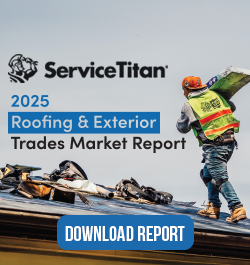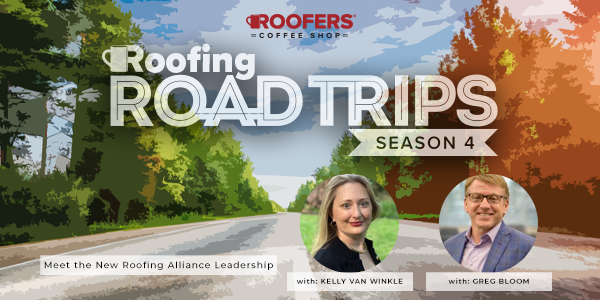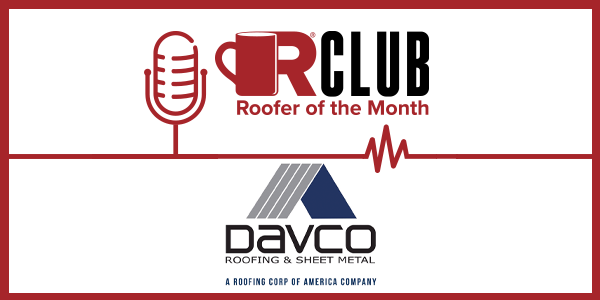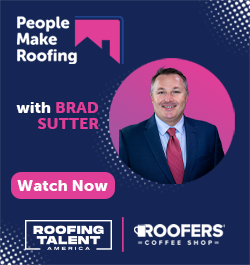CCS Coffee Conversations - Navigating Insurance Challenges for Commercial Roof Restorations - PODCAST TRANSCRIPT
June 6, 2025 at 4:14 p.m.Editor's note: The following is the transcript of a live interview with Josh Poole, Chip Case and John Hall. You can read the interview below, listen to the podcast or watch the recording.
Intro: Let's get started. Good morning everyone. As I said before, this is the inaugural CoatingsCoffeeShop.com Coffee Conversations. Thank you all for being here. I'm really excited to be here with my esteemed guests and we're going to be talking about insurance, insurance challenges for commercial roof restorations and everything going on in Florida. I'd like to first just do some housekeeping. Thank our sponsor, APOC and RCMA for helping put all this together and getting these nice, amazing gentlemen here to chat with me about insurance in Florida. And thank you APOC for being just a great partner. They're the premier sponsor of CoatingsCoffeeshop.com.
And we're just really happy to work with them. I wanted to let you all know that this will be up on CoatingsCoffeeShop.com in about 24 to 48 hours to watch back if you really love it and send to all your friends and co-workers. If you are in the chat, I just sent a message, good morning. Let us know where everyone's Zooming in from and please throughout the conversation today, if you have questions or comments, get in the chat and we will try to answer as many of your questions as we can. Now it's time to introduce my esteemed guests. First, Josh, who are you and where are you Zooming in from?
Josh Poole: Thanks, Megan Ellsworth. My name is Josh Poole. I am a director of product management for Tremco. I'm Zooming in from Northeast Ohio here today. And just a brief background on myself, I'm approaching 20 years in the industry, which is hard to believe at this point. Held a lot of roles during my time from customer service to tech service, sales management. And over the past decade, I've hunkered into product management and enjoy doing that work. In addition to my work at Tremco, I'm also the current president of RCMA, which is the Roof Coatings Manufacturers Association. I'm also an active member of NRCA.
Megan Ellsworth: Absolutely. Thank you, Josh. Next Chip, who are you and where are you Zooming in from?
Chip Case: Hi, my name is Chip Case. I am a professional lobbyist or governmental consultant, is probably the fancier way to explain what I do. I have owned my own firm for approximately 15, 16 years now. I've worked in Florida politics for closer to 28 years. And previous roles I've worked in, I've been the executive director for the Republican Party of Florida, major donor maintenance guy for the Republican Party of Florida, political advisor to seven speakers, three senate presidents, deputy chief of staff for Speaker of the House. And after all that decided I was going to go out and lobby.
I currently represent a variety of clients, everything from child welfare to major corporations like Florida Crystals, Sugar Company, AT&T and other groups like that. And I am Tallahassee based, the epicenter for what we're trying to do with Citizens insurance and correct and fix some issues that I think you guys are having here in Florida, but then globally as well, I think whatever we can get done here in Florida is going to be a good blueprint for what you guys will be able to do in other states if you're having the same similar problems that we're having.
Megan Ellsworth: Absolutely. Thank you so much, Chip, what a resume. Wow. I'm really glad to have such a professional and wealth of knowledge here, so thanks for being here. John, who are you?
John T. Hull: Howdy, howdy. I'm John T. Hull, so I've been in the roofing industry about 30 years. Started my career as a contractor, had offices and worked south, southeast US, so from Oklahoma, Texas all the way over to the East Coast. Spent about eight years on the manufacturing side where I led the roof coatings and roof sealants product group for the largest coating manufacturer in the world. And then since then I've spent about eight years as a roof consultant. I do work globally. My specialty is roof assessment, testing, failure analysis. I do a lot of work with insurance carriers as well as property owners, contractors, so the full gamut. I bridge all of them where really my specialty is moisture and determining if roofs have failed, how they failed and in that I am a big proponent of roof restoration and performing the due diligence and testing to ensure proper restorations and long-lasting restorations. But I do all types of roof consulting. That's me in a nutshell. Oh and I am based in the Florida Panhandle near Panama City, but today I'm on assignment on location in Southeast Florida.
Megan Ellsworth: Amazing, so you made the drive yesterday?
John T. Hull: That's right.
Megan Ellsworth: You made it home safe or to the job safe. Nice. Gentlemen, I just want to level set. Josh, you can maybe take this first. What is going on with insurance and restoration work in Florida, just to set the stage for us?
Josh Poole: This we can go a long ways back in the history of insurance in the State of Florida, but for the purposes of this call, I think this story probably starts about three decades ago. We had mounting repair costs that were following natural disasters that were wreaking havoc in the State of Florida. And this created a cause and effect that's currently impacting the residents of Florida today. On the positive side, this shed light on the need for improvements that be needed to building code requirements and upgrades in that facet, so over the past few decades, there have been a number of improvements that have been made to the state building code itself. And that's led to buildings and structures that are just built better and better equipped to withstand hurricane damage, in particular. On the negative side, the hikes and adjustment costs that stemmed from those events led many insurance companies to begin exiting the state, limiting coverage and policies that they provided. And all this prompted Florida's state legislature to establish a state-run Citizens Property Insurance Corporation back in late 2002.
Originally this corporation was intended to be a stop gap last resort option to help residents gain coverage where they may not have been able to in the private sector. And it was only anticipated to account for a small percentage of the insurance policies within the state. Over the next subsequent 20 years, cost for insurance companies have continued to balloon. There's been a number of reasons, some of that's been unsubstantiated claims that have led to full roof replacements, potentially in cases where that hasn't necessarily been the correct call or the right solution. More insurance companies have left the state and as of a couple of years ago, Citizens became the largest insurance provider in the State of Florida, so a very unintended consequence there. In an effort to combat rising claim costs in 2023, Florida lawmakers in collaborations with Citizens and other insurers enacted legislation that allows insurance companies the right to deny coverage for roofs that are older than 15 years. And that's a quick recap on what's happened and brings us where we're at today.
Megan Ellsworth: Absolutely. John or Chip, anything to add on just the history of low slope roofing in Florida and some of these insurance changes that have happened over the years?
Chip Case: Josh, I'm going to let you take that since you understand that low slope Roofing, different products and what's currently being used here in Florida.
Megan Ellsworth: Or John.
John T. Hull: I'll jump in. One of the key things here is I think this bill was intended to be more residential homeowner driven and unfortunately we've had condominiums and large multifamily properties that's gotten lumped into that. Now, the big problem with that or one of the big problems with that is a traditional steep-slope residential home, a single-family home has a very simple roof system. It's usually an underlayment and a shingle or metal, very minimal components. Largely the system is exposed to weathering and UV, etc. With a condo or a multifamily property or a low slope roof that is a very robust and complex roof system.
We have a roof cover on these that can be... An asphalt built-up roof can be a half inch to an inch thick versus the thickness of a shingle. And then we've got three to 10 to 12 inches of insulation below that. Unfortunately we've got these very robust, complex, well-engineered systems that have been lumped into a simple shingle nailed into a five-eighths piece of plywood with an inch, inch and a quarter nail. And they've all been lumped in together and it really has caused pretty significant damage to the industry. From a high-level perspective, these roof systems shouldn't be lumped in and categorized the same.
Megan Ellsworth: Agreed. What does the legislative language look like for insurance policies in the State of Florida? And we have this up on the screen. Chip, can you go into what this is and what that legislative language is looking like?
Chip Case: Yeah, absolutely. And so what we did going back probably about four weeks ago was we took a stab at doing some suggested bill language or some suggested amendment language to the state statute. Originally we tried to meet with Citizens to see if there's something that we could do administratively. Unfortunately, I just don't think we're going to get there. I'm just going to continue to chat with them but I think having legislation does two things. First of all, they have to do whatever the policymakers say that they have to do, so that's the importance of the legislative aspect of it. And because the legislators are concerned about the insurance market here in Florida, they're also very concerned about their constituents. And so if having to replace your roof on your South Florida condo every 15 years without doing a roof coating type of product that could potentially extend the life or help protect the roof, that's a huge cost savings.
If we could do what we're doing, continue doing what we're doing without any cancellation of policies or not rewriting policies or anything along those lines. And so what you have here basically is about an eight page and it's in bill form, but bill form is the same thing as state statute or state or an amendment form that we would be adding the state statute, so you have an eight-page bill basically. And what I've asked for Megan Ellsworth to do is basically just put up for you the language that has changes in it. And so anything that's underlined... Let me back up. Everything you see in front of you is currently in state statute if it is just worded the way that you see it. Everything that is underlined is new language that we're asking for them to consider and add into the bill. And things that are stricken with a line through it, those are state statute language that's currently in state statute that we're asking them to remove from state statute.
And so as you go through that, you can basically see what the main issues are. There will be a couple of changes that are still coming, which will be a definition of a certified roof inspector that will tailor it more to it being an honest broker for a roof inspection. Meaning that if it's somebody that wants to put a new roof on there and that's your roof inspector and they work for the company that builds the new roof, then they're going to say, "Hey, you don't want to do a coating or this coating or this covering isn't going to work." And they would rather replace the entire roof, so that is one change that is not currently in this language that we're going to be adding to the language. The second thing is the definition of what a slope roof is, a low slope or steep slope roof in there.
And so if anyone would like to see the adjusted, once we add in the roof inspector language, we can go ahead and probably forward that to you guys in the next couple of days so that everybody on the phone call can see what we're doing here in Florida with all those types of changes. And so currently Florida, I don't know how many people on the phone call know the political climate here in Florida, but there was a special session that was called by Governor Ron DeSantis to deal some of these issues and immigration bill and some other stuff. The legislature felt that the immigration stuff was probably something they needed to deal with right away. They dealt with that during a special session. The legislature did not want to deal with any of the insurance citizens wind damage type of legislation for condos, commercial buildings or residential during a special session.
There's approximately right now 11 bills that are working its way through the legislative process. The legislative process here in Florida lasts for nine weeks. Next week is going to be week four, so currently we still have six weeks left. After next week we'll only have five weeks left and there's a lot of different bills that we could amend this language on to. The trick is trying to identify one or two of these bills that are going to be the bills that are actually going to pass. The way that legislation passes in every state, but here in Florida is the House and the Senate have to agree on the language, they have to pass the same bill, it has to say exactly the same type of thing. And then from there we go to the governor's office for him to either veto the bill or for him to sign the bill. The bill can become law without his signature, but it has to sit on his desk I think for 14 days, something along those lines.
And so our goal right now is to basically chat with everybody that has their fingers in the middle of this insurance condo, windstorm, Florida Citizens Insurance pie. And so we'll be doing some meetings next week where I'm requesting about 15 meetings. I expect to probably get somewhere between seven to eight. One of those key meetings will be the senate president who lives in the Tampa Bay area and has to deal with this locally, understands this issue locally and he's going to probably help us identify the proper vehicle where this is going to go. Typically, what will happen is if there's not a specific bill that will pass that we would get amended onto, they may end up doing what is called a committee bill, which can come out the last two, three weeks of session where they're going to take the best policy ideas, the best changes to state statute and take that from those separate 11 bills and create a committee bill that will have that stuff in there.
A big part of what we're trying to do is we're trying to be part of the discussion, educate people, notify them about what's going on and not just about the legislation change that we want and how we think it's going to be good for the consumers of the State of Florida, but more importantly because here in Florida we have a very business-driven conservative type of legislature currently their Republicans control the house, the Senate, every statewide elected office and also the governor's mansion. And we also have a majority of our congressional delegation is also Republican, so the business interest, business size, amount of revenue you generate, the amount of employees you have, those are all things that the legislature is going to tune into, especially if we're talking about Citizens Insurance basically saying that you can't use these products or we're going to deny your claims, we're not going to write your policy if you use these types of products. That would be a huge impact for local state representatives, State Senators for those businesses, for those employees.
And so that's the crux of our argument is not just, hey, this is the right thing to do. We're lumped in with the steep slope, asphalt shingle residential stuff, so we need to be separated, but also for jobs in the economy, we need to do this fix so that these individuals, these major players that are generating somewhere between, I think we were looking at the list, just here in Florida, I think we're generating close to $700 million for the State of Florida just in revenue. And then you can extrapolate from that what the tax revenue would be. And then those employees that are employed, I think we have almost 900 employees through different members of this association, different companies, different products and that type of thing that they belong to this association. When you talk about those raw numbers, that is a real driver for the business community and us doing a fix for the constituencies.
And look, many of these individuals that are affected, a lot of their constituents are senior citizens that live throughout the State of Florida in a low slope flat roof condo. And these are individuals that have worked their entire life either here in Florida or somewhere else, retired to Florida, came to Florida, they live on a fixed income. And these special assessments are the type of thing that are going to affect what they buy at the grocery store type of stuff or whether they're going to get their car repaired, whether they're going to be able to pay for prescription drugs, that type of thing. And so all of that is connected and tied to what we're trying to do here in Florida. And so that's what the legislation does and that's pretty much the arguments we're making and whether Citizens really wants to be helpful to us or not.
And I still believe that there's some confusion with Citizens and we've been trying to work with them. We did do a Zoom call. I know the CEO of Citizens personally, I still think there's some confusion on their end about what our product is compared to the spray on type of stuff that you see on Fox News for the steep slope, asphalt shingle guys and why we shouldn't be in that arena at all. But that's the soup and nuts of it. And if we can get the legislature to be helpful to us, then Citizens is going to have to do it or they'll come along. And we've also met with the insurance office, the CFO office here in Florida. The chief financial officer is one of the three people that sit on the board of insurance here in Florida for the Department of Insurance. And they're probably a little bit more helpful or trying to be helpful.
That's a statewide elected office, so the CFO obviously understands all of the arguments as it relates to the business and the constituency and that type of thing. Citizens Insurance is, as we have described it, it's a state funded, state-built insurance company. Their goal is obviously to remain solvent and to either be the insurer carrier of last resort or be the insurance carrier that doesn't want to cover additional payments for insurance or increase coverage at all. Even though there are other companies, other major insurance companies, whether it be commercial or private, meaning residential type of that do do insurance and do cover us. The goal is to get Citizens to understand that you don't have to cancel us or not write policies with our product because other people already do it.
Megan Ellsworth: Absolutely. Well, thank you Chip for that. There's so much going on in the chat, lots of people reading through the document and have a lot of questions. I'd love to, before we get to some of the questions, just read some of the comments. "Liquid applied roofing has seen impressive growth in the past years, especially due to uncertainty around the economy, allowing greater use of it will be a good thing. It is the cheapest roofing product out there and it is very effective." That was Lily Smith from Principia. And then, "Lots of greetings from around Florida, so glad everyone's here, C1 will make a big difference." And then we do have a question. From Jeff Harvey, "In C2, who would be the authorized inspector? Is it the public adjuster, the roofing contractor, a roof consultant or a manufacturer's representative or would it be a culmination of parties listed above?"
Chip Case: John, I think you would be best since you do the training on that. I think John, you would be the best to answer that.
John T. Hull: No problem. Yes, some combination thereof, allowing engineers, to some degree licensed roofers, as long as we are careful about and Chip mentioned, as long as we're careful about agendas, if you will. Roof consultants, definitely. Roof consultants are really one of the true third parties that can go in with a non-biased and scientific approach and do the due diligence, so that's always my lead recommendation.
Megan Ellsworth: Going off of that, I'm going to jump around our questions here, what role do consultants play in determining the condition of a roof and how can we standardize the process to prevent these unnecessary denials?
John T. Hull: The consulting world accredited consultants from IBEC and I see Chris's comment there, he's absolutely right, there's a process of due diligence where you're obviously visually inspecting the roofs for physical damage, which as I mentioned when I was describing the roof assemblies, you're only looking at the surface, the wear surface. We're not looking at how the roof's attached any moisture content, any deterioration of materials, any potential mold growth in there because of moisture intrusion, edge details. A roof consultant will need to go in at a high level, but have a very strict due diligence process that not only includes... I do a lot of training on this and we talk about our most important tool is our eyes. We have to use our eyes, but there's other technology out there that we have to use from moisture meters to intrusive testing. A lot of people have defaulted to infrared drones and that seems to be the buzz that everybody uses.
But with that, we've got to do and a consultant will do this, have to have destructive testing because we have a lot of comparative tests and methods of measuring moisture and issues. But if we don't do some destructive testing and get some hardcore numbers, then that's all just throwing darts. That's where a roof consultant will come in and go through the full gamut of, instead of just popping your head up on the roof and looking around and saying, Yep, it's toast," or, "No, it's not," just based on the surface wear, we need to take a deeper dive and perform due diligence. And that's where a roof consultant will come in. And roof consultants are specialists in the roofing world. They understand roofing assemblies, they understand the risks associated with an edge failure and things like that where some of your... I'm not saying others aren't, but other people might be a little more generalist. We're not typically focused on the interior, not electrical, things like that where an adjuster or a home inspector, they're more generalists and not specialists like a roof consultant would be.
Megan Ellsworth: Thank you. Thank you, John. Josh, I had like to... We all know the answer to this question, but let's talk about it. What does this push for tear offs at 15 years mean for the future of roof restoration?
Josh Poole: Essentially it eliminates the option of restoration for homeowners. And it's really a shame because it's a way and means, a valid way means of extending the life of the roof. They could do that typically at a third to a half of the cost of a replacement. And because of the way that the legislation's written right now, homeowners are now required to absorb the high cost of removing and replacing roofs along with the disposal fees instead of having the option to keep those roofs in place, which are performing well and doing well to date and not having the option to restore them. I think this has been brought up a couple of times throughout the call, but it's really putting unnecessary expenses and financial strains on homeowners and in particular those seniors who are living on fixed incomes in the State of Florida. If you go beyond the financial impacts themselves as well, like you said, we're tearing off perfectly good, well performing roofs unnecessarily. Those roofs are going to landfills that are already overcrowded.
And that's an ongoing problem that we're seeing everywhere and in particular has been a very large issue in the State of Florida. Right now it's really putting homeowners in a position where they have to take on and incur the unnecessary costs of either doing a replacement... One thing that we haven't mentioned, there is an option to perhaps get a five-year extension on roofs that are 15 years or older, but again, that comes with homeowners taking on the cost and the hassle to bring out one of these certified or approved inspectors and run through that certification process. And then I think it's also important to note that even if they go through that process and they have that certification, the insurance companies still reserve the right to deny coverage or increase premiums in cases like that. It's really a difficult position that the residents in the State of Florida have been put in.
Megan Ellsworth: Chip, we have a question from Joe Sorrentino, hi, Joe, "If all goes to plan, when would you expect this legislation to be implemented, some of these changes that you all are proposing?"
Chip Case: A session, a 60-day legislative session, the last day of session will be the last week in May or the first week in May. And so typically what happens is the legislature will go ahead and start sending bills over the next two, three months, be sending bills over to the governor for him to sign. They'll actually be sending some bills before the end of session for him to sign as well as the state budget. Typically and how this language is drafted in bill form to amend or change state statute, it would be July 1st. And so that is typically what happens when you're doing new legislation because we also do a new budget year every July 1st. The way that we do budgeting here in Florida is July 1st is basically the start of the new fiscal year here in the State of Florida.
And so they try and marry up as many policy ideas, state statutes, bills, things like that, that are going to be changed and passed to July 1st. Occasionally there is, if it's a human trafficking type of situation or if it's a special session type of thing that we did here in Florida with immigration, it will be effective upon the bill being signed by the governor. But that's probably one 20th of the time or something like that that they put that into legislation, so I'd expect that it would be July 1st. That's what we currently have a drafted to and the bill or the committee, any of the 11 bills that are the available vehicles, bills that are filed that we might want to get amended onto. But the actual committee bill, the package that I think is going to pass State of Florida, it'll be July 1st.
Megan Ellsworth: Thank you, Chip. We have some other people out of Florida here. We have Colorado, looks like a lot of East Coasters. How widespread is this issue? Are we seeing similar denial cases beyond Florida, such as New Jersey? I know Colorado with wildfires, there's some things being seen here. Do you all know of any other cases outside of Florida?
Josh Poole: I think just from the wind issues, we have seen this particular policy, while it hasn't been widespread outside of the State of Florida at this point, we have seen instances where similar type of positions are being taken by insurance companies outside of the State of Florida at this point. We have experienced situations in New Jersey, other coastal areas as where this seems to be coming up more and more, if at all. I think part of what we're looking at is, can we adjust the policy to where it allows us to go about making roof recommendations, letting the citizens work with licensed professionals to make the right choices for their roofs and keep them performing well? And try to get out ahead of that so that we aren't seeing policies that are very straightforward and not offering a full complement of options and viable options to property and homeowners start spreading outside of the State of Florida at this point.
Megan Ellsworth: Okay.
John T. Hull: I'll just dovetail on what Josh said there for just a second. I'm seeing this, I do a lot of work throughout the southeast and even all the way to the west coast and I'm seeing this become a real issue in Louisiana and they've got a Citizens there as well. I think that's the next state where we're going to see a massive problem. And then I've even seen it all the way out to California. I've had several projects in California in the last year and seeing that there as well. Just like Miami-Dade standards are not statutory in the rest of the country, they do set the stage, if you will. And I really believe what we do here in Florida could set the stage north and west out of Florida.
Megan Ellsworth: Wow. Getting a lot of questions in the chat here. Have we heard anything about Texas with this-
John T. Hull: A little bit on the coastal areas, yeah, especially down in the Big Bend area.
Megan Ellsworth: And then from Vanessa Mance, "Potentially, what would be the consequences you guys would warn other states about when it comes to insurances pulling out of other states in the future?
Josh Poole: I think we've talked a lot about high level topics here, but actually getting into what is actually happening and we'll stay in the State of Florida here. I know we've gathered a number of experiences that have happened with real people that live in the state that have been affected by this. I'll just share one example. We had a 21,000 square foot condo that was in Florida, had a modified bitumen roof on as the original roof. Back in February of 2020 a Florida licensed roofing contractor went in, was permitted and restored the roof with a roof coating at that time. And the cost of that project was approximately $100,000 in total. In 2024, Citizens Insurance came back and refused to renew the coverage on the facility because the roof was more than 15 years old.
They did not recognize that the roof restoration or the roof coating was a means or a new roof in essence in their definition, so despite going through that, having a well-performing roof that had no issues, that roof, the condo association was forced to tear off and replace at a cost of $600,000 plus assessment fees and everything else. And that cost on average the homeowner there within that condo complex, anywhere from 6,000 to $10,000 per homeowner to do this unnecessarily on a roof that was in place and performing well at the time. That's just one example of a project and a way that real citizens have been impacted by this. I would say also that in states, John mentioned they have a citizens type insurance corporation that's in the state of Louisiana. Last year in October, Citizens Property Insurance went through a... Or enacted their depopulation program and that resulted in over 400,000 policies being transferred into the private sector.
And the way that that program was implemented and went about, really the stipulations allowed homeowners to refuse the offer to transfer or the transfer itself if the new policy was 20% more in cost than their current policy that they held through Citizens. But in cases where that cost didn't exceed 20%, the homeowners had no choice in the matter and essentially that transfer was made regardless of whether or not they wanted to stay with Citizens or not. Those are a couple of ways or instances that have had real effects on the citizens here in the State of Florida. John, I know you've had projects and specific situations that you've experienced as well.
John T. Hull: If you guys don't mind, I'll take maybe two or three minutes and just share two different examples of how this has affected real people and residents financially. Actually today I'm going out to a project and this is one tentacle or repercussion from this abrupt change. I've got a condo that I'm going out to see that last year, just a few months before their renewal, they were told they have to put on a new roof, period or they were not going to get renewed. They scrambled to one, they hadn't budgeted, they hadn't prepared, they didn't have the reserve to do this, so they made a quick assessment, scrambled to get a contractor that could meet the deadline imposed by the insurer to start the roof. They took low bid, they didn't get to vet things, they took low bid, they went on, did the project and lo and behold, the new roof was an utter and absolute failure.
Now they're spending another million dollars and another assessment, 30, $40,000 per resident to put on a new roof that now they've got a little time to do their due diligence and whatnot. I can get into the workload of contractors in Florida, the backlog, the people that if the insurer tells someone they've got 90 days to get this job started, chances are it's not going to happen unless it's potentially an under-qualified contractor, so that's one thing. The other thing is last year down in St. Pete, after Helene and Milton blew through, I was hired to do roof assessments on an 18 condo tower property. It was one property, all the same construction, had roofs of varying ages, had several roofs that were brand new. The insurance carrier last year told them they had to replace those roofs or they would be denied coverage, so they replaced roughly five roofs on the site just a few months before the hurricanes.
They had another three or four or five roofs that had been restored with foam and coatings within the last five years. And then they had the rest were typically asphalt roofs. The only roof on the property to fail was one of the new ones, of course. The only roof that was blown off was one of the new ones. And that's largely because they were forced to tear off a more robust system and they went back with... Again, it was unplanned, it was unbudgeted, so they had to go and do what they could afford and they put a lesser or inferior roof that met the insurance qualifications but did not serve the property owners well. Those are just a couple of examples of the things I'm seeing on a regular basis that really have really dire consequences for homeowners and citizens in the State of Florida and out of Florida, we're seeing this more and more. Those are just a couple of real life case studies that I'm personally involved with right now.
Megan Ellsworth: Wow. We also have a comment from Jim out of Colorado, "We work in Colorado and are seeing insurance companies taking longer and fighting harder on roof replacements. The wildfire issue is mostly in the foothills of the mountains. Some of the more aggressive insurance companies are forcing homeowners into ACV policies after 10 years, commercial deductibles are rising significantly." And then we have a good question here from Vanessa, "Do we believe that Citizens or insurance companies are requesting full roof replacements because of a false concept that it's cheaper or less paperwork in the long run?"
Chip Case: This is Chip. I would say that Citizens Insurance obviously is not in the business of trying to save homeowners or condo owners money. They're in the business of trying to limit their liability. And so if they think that putting a new roof on is going to limit their potential liability and again, the problem with that is that if you can't afford to put on the proper structural roof, but you're putting on a less quality roof, it is going to end up costing more. And so I think, again, I think there's some confusion with Citizens that they don't understand exactly what our product is, what it does, how it can extend a roof, how it can save money. And in many ways with... Look, for what we have to do in Miami-Dade, the building code in Miami-Dade is the toughest, strongest building code anywhere in the entire nation.
And if we can get approval, which we do have approval from those guys, that should be the gold standard. That should be where every insurance company, including Citizens, does not have anything to be concerned about. And again, everybody, it depends on the company, it depends on the type of product, but everybody has their own warranty that they apply as well. And that should also be factored in to the work that's being done on these roofs to extend their life and to help keep the cost down. But their goal is obviously to limit their liability. If it costs you five times, 10 times as much to replace the roof, whatever quality of roof you put on there, in their mind that's limiting the liability on their side of it versus not understanding what our product is and saving constituents, senior citizens that on fixed income, that's just not their business model.
Look, every insurance company except for Citizens because it's a state run type of thing, but every insurance company is a business. They all have a business model. They all have to go to Wall Street every quarter. They have to report for their investors a profit if they possibly can. And there's nothing wrong with that as long as services are being provided, as long as what you are paying for is actually getting done. And where our product is different is, it's a newer technology from the perspective 20, 34 years ago, this was not something that existed. And so we got to get insurance companies and get Citizens of Florida up to speed with the technology of what these products are so that they understand that there is a cost savings not only to the constituency and the senior citizens here in Florida, but a cost savings to the State of Florida and insurance companies because these products are good for doing just that.
John T. Hull: I'm going to jump in and echo Chip for just a minute in that, I don't care what product you take out to a roof, whether it's a bucket of coating or a roll of membrane, it is a product and it is how that roof is evaluated and how that product is installed that makes the difference. And there were some cowboys, if you will, back years ago that would go out and paint roofs and there's a difference between painting a roof and restoring a roof. I think the industry, I know the manufacturers of coatings have gotten more risk averse and so they're requiring more due diligence on the front end. Restoration is a process. That process involves evaluation, a little more mitigation of problem areas, repairs, even upgrading roofs in some degree, so I think the insurance companies to some degree have this mindset about, well, it's just going out and painting a roof.
Well, the coating can fail just like a membrane can fail. It is the process of roof restoration and that's what they've got to understand. And if that's done by qualified contractors, there's due diligence, there's oversight, there's all these things, there's maintenance, whether you're coating a roof or storing a roof or installing a new roof, there has to be maintenance. That's truly where I see most roofs fail is lack of maintenance. It is not the product that was put on the roof. Just to echo Chip's case, I think there's a little bit of misconception out there, but everybody wants to mitigate their risk, the manufacturers of roofing products as well as the insurers. And I think everybody can get aligned behind mitigating risk and improving the installed product for the ultimate owner of the building, the homeowner or the... We've just got to get everybody a little better aligned on that.
Megan Ellsworth: I agree. It seems in the chat too that there's a consensus there's just a lack of education of what the restoration process looks like. We have some comments in here from Joe, "Restoration Systems have been in practice since the 1980s. I was involved in my first project in Atlanta in 1985." There's definitely a lack of education, so how do we as an industry advocate for these clear insurance policies and help educate the public and these insurance companies on the power of restoration as a viable and sustainable solution? Chip, maybe you can... How do we attack this?
Chip Case: When I was brought on board to be the lobbyist for the association, that was one of the things that we focused on was identifying what the product is, what the products are, what the difference is. I've been sent videos of, this is how we apply it, this is what it is, this is what it does. Definitely, when we met with Citizens on a Zoom call, because we had, I think four or five people from our side, they had four or five people from their side and then the CEO. I understood, they clearly did not understand what the product was. They didn't understand what makes us different. The type of roof coatings we're doing, the type of restoration that we're doing, they didn't understand what it was. And so it is going to take a little bit of time. I think it's going to be an ongoing process of educating the legislature, educating insurance companies.
I think this is the type of thing that's going to be a multi-year type of goal. Clearly what we want to do though is we want to get key leadership in the Florida House and the Florida Senate to go ahead and do a statute change so we can have an effective change right away. And then above and beyond that, continue educating rank and file members of the House and the Senate insurance companies, Citizen state employees, basically state. I don't mean to call them bureaucrats, but people that work in the bowels of state government understanding what this technology is, what the product is. And that's exactly why you guys belong to this association. That's exactly what this association is doing. They're stepping out and they are communicating and educating people about these products and how it's a good thing.
And so I applaud them for that. But I think it's going to take more than the next five weeks for us to do a complete education program. We just want to get to those key leadership members that are dealing with these insurance issues here in Florida. Quite frankly, a lot of them don't like Citizens, which helps us out a lot. Getting those people to do a statute change so that we can have an effective change going forward. And then as you guys move to other states, they're going to have to do the same type of thing that we're doing here.
Megan Ellsworth: Absolutely. Josh, I know you attend Roofing Day, you're not going this year, but how can roofing contractors out there in Florida and other states get involved to help educate the people that are in our government?
Josh Poole: And unfortunately, I won't be able to attend Roofing Day, but it is a great event that's put on annually. As far as reaching out in the State of Florida, absolutely, I think one obvious way is as a resident of Florida, reach out to your representatives, notify them of your concerns of issues or if you have been affected by this, how it's affected you. And then contractors and other industry professionals, I'd urge you to look at your industry associations, whether it's the Florida Roof Contractors State Metal Association. There's many others, ARMA, RCMA obviously is a fantastic organization. That's my completely unbiased opinion.
But other industry organizations where these effects are taking place. I know there's a number of them that have ongoing efforts to try to get policy changes in place, get active within those organizations, do what you can, put your work in and effort and join that voice to show that we need change in the way that things are going down here, specifically in the State of Florida. I would say that's one definite way that especially contractors can get involved. Go and start doing what you can to help support those efforts through associations.
Megan Ellsworth: Absolutely.
Chip Case: Let me add this too. I'll be glad to forward to Megan Ellsworth... Hey, look, all of the contact information for your State House member and your State Senator are on the State's website. What I have is I have an Excel spreadsheet that I'll forward to her that she can forward to those people on this call that would like to have it. And what I have on there is not just the state representative or the State House members email, but I have their legislative staff as well. And typically those are the people you really want to be emailing and communicating with. If you send something to your state representative, you're going to get thrown into a junk holder until they get around to taking a look at it. And if you're a State House member or a State Senator, it's not a full-time job, it should be because if you're doing it well, it is a full-time job, but it's not functioned as a full-time job. It's a part-time job. They only make $27,000 a year. The full-time staff for those members, the aides and those district secretaries, it is a full-time job for them.
It is their job to be responsive to the constituency. And so I'll be glad to send that to her so she can forward that to you guys. And maybe what we'll do is also draft, not a form letter, but basically draft, "Hey, here's the outline of what's going on and I need you to get engaged. Understand this is a problem here in the State of Florida." I do think that's important, but what would be helpful, because if it looks the same every time it's sent out, it looks like a form letter, it's going to be dismissed. But we can definitely do a bullet point outline of, these are the issues. This is why I need for you to get engaged. But if you have a personal story, if you have a personal issue and this is how this affected me and this is what it cost me or this is what it cost my company or the people that I service, that type of thing.
If you can add a personal connotation or a story to it, then it will definitely be read and probably be responded to faster than just that. But that is definitely one thing that we can do in a letter or email form.
Megan Ellsworth: Absolutely. Thank you, Chip. I will send all this information out to anyone interested. Just throw your email in the chat if you would like me to send you our resources, the legislative document and anything else that Chip provides. Thank you gentlemen so much. There's still so many questions. Just lightning round really quick. We have four minutes from John Santoro, "Is the issue with denial of coatings on older roofs that the attachment of the existing roof system can't be validated without extensive testing?" Maybe John, you can take that.
John T. Hull: That may be a perception, but that shouldn't be the case. It is pretty easy to test an existing system with or without coatings to determine how well it's attached. It starts with good moisture testing, because if there's moisture, that's an indicator there's other issues.
Megan Ellsworth: Last question from anonymous attendee, "Has there been any differentiation from insurance companies or legislators of restoring metal roofs as compared to low slope products?"
John T. Hull: I haven't seen the requirements being enforced on metal as much as low slope. I've seen them allow more restoration of metal.
Megan Ellsworth: That's awesome. Well, I think that's all of our Q&A questions. Thank you gentlemen so much for chatting with me today and just providing really great information and wisdom to everyone here. Again, everyone in the chat, send your email if you would like more information after this. This will be up within 24 to 48 hours on CoatingsCoffeeShop.com so you can watch it back, take notes, send it to your colleagues. Thank you APOC for sponsoring and also RCMA for helping put this panel together. I just want to let everyone know that next week on RoofersCoffeeShop.com, we're going to be talking about steel tariffs with Sherwin-Williams and how that's affecting the industry, so it's going to be really hot topic, obviously just like this one. That's what we're all about here at the coffee shop, so I hope to see you all there. Please go to CoatingsCoffeeShop.com to learn more or RoofersCoffeeShop.com to learn more there as well. Thank you gentlemen so much. This has been amazing.
Josh Poole: Oh, thank you for having us.
Chip Case: Thank you.
Outro: Absolutely. All right everyone, we'll see you next time on the next coffee conversation. See you.























Comments
Leave a Reply
Have an account? Login to leave a comment!
Sign In